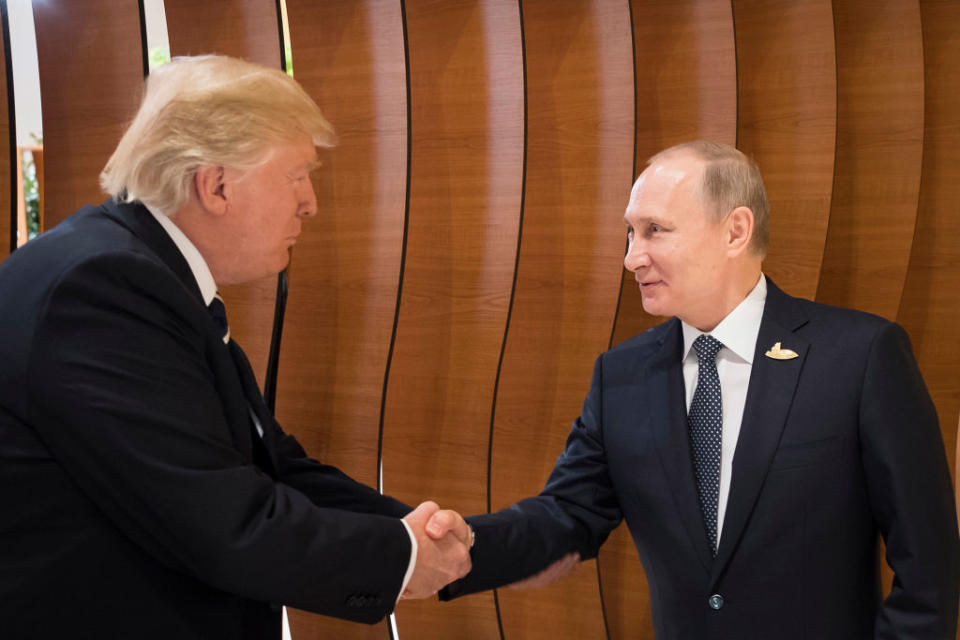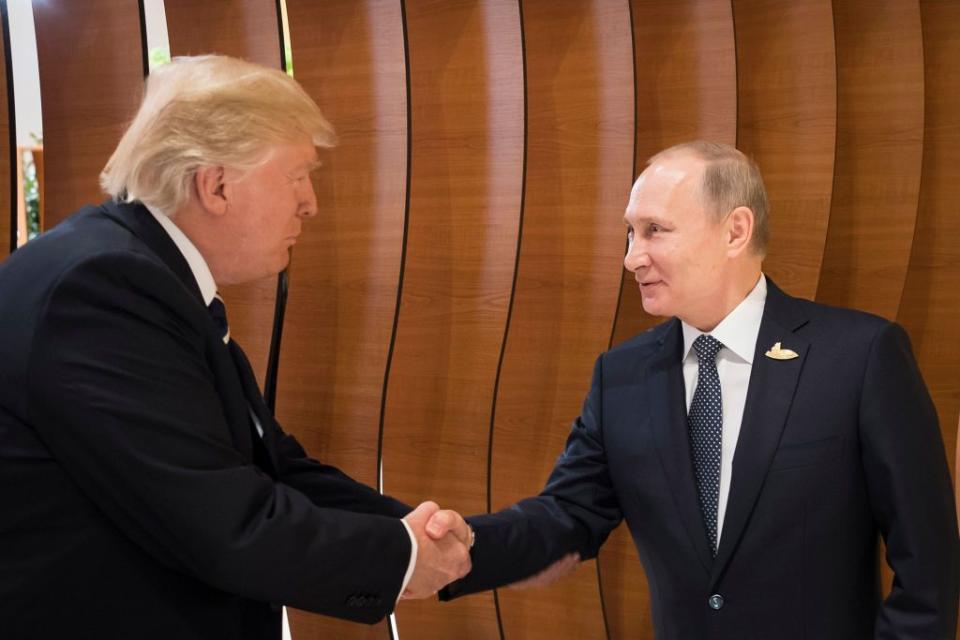How Russians Used Social Media to Boost the Trump Campaign, According to Robert Mueller’s Indictment
The 37-page indictment issued yesterday by Special Prosecutor Robert Mueller alleges that Russian agents used a multitude of tactics to attack Donald Trump's presidential rivals and sow mistrust of the American political system. Prominent among those tactics was one that journalists, intelligence agencies and cybersecurity experts have been sounding the alarm on for nearly two years - the manipulation of public opinion through social media.
Those early concerns focused on 'fake news,' some of it produced by profit-hungry websites simply looking to generate clicks. But the Mueller indictment echoes subsequent findings that masses of false or misleading social media activity was engineered by Russia's Internet Research Agency, as part of a plan to "defraud the United States by impairing, obstructing, and defeating the lawful functions of the government through fraud and deceit" beginning as early as 2014.
According to Mueller's indictment, the Russia-backed operators of social media groups and accounts posed as Americans, including by using "the stolen identities of real U.S. persons" and servers and computing infrastructure located in the United States. The indictment claims the Internet Research Agency employed "hundreds of individuals for its online operations."
The IRA, according to the indictment, created social media accounts intended to look like real Americans. One tactic was distributing lists of U.S. holidays to the 'specialists' running the accounts, so they could post holiday-appropriate content. The operatives were instructed to target the most hot-button political issues, by talking about and starting groups centered on immigration, police misconduct, race, and religion.
Get Data Sheet, Fortune's technology newsletter.
These tactics of impersonation succeeded to a sometimes stunning degree. One Russia-controlled Twitter account, @TEN_GOP, claimed to represent the Tennessee Republican party, and garnered 100,000 followers. disclosed last year that Russia-generated content reached as many as 126 million Americans on its platform. One apparent key to the effort's success was sheer relentlessness - the indictment says the IRA's social media specialists were divided into day shifts and night shifts, and made posts that aligned with U.S. time zones.
Again echoing prior reports, the indictment specifies that these efforts primarily supported the Trump campaign and disparaged Hillary Clinton. The Mueller team obtained documentation of an 'internal review' of an IRA-controlled Facebook group called "Secured Borders," whose operator was dinged for creating a "low number of posts dedicated to criticizing Hillary Clinton". Other accounts and groups created by the IRA had names including "March for Trump" and "Clinton FRAUDation."
Other tactics were more subtle. One IRA-controlled Instagram account called "Woke Blacks" encouraged politically active African-Americans, who were generally more supportive of Clinton, to abstain from voting altogether. Another account aimed at African-Americans promoted the candidacy of the Green Party's Jill Stein, in an apparent attempt to pull votes from Clinton. The indictment also cites a number of paid social media ads denigrating Clinton, bought with Russian money funneled through PayPal accounts set up using false U.S. identities.
These online efforts fed into real-world activity, including promoting a series of Trump rallies in Florida. The indictment says that effort involved direct communication with the Trump campaign and grassroots pro-Trump groups in August of 2016 - though under the pretense of fake U.S. identities.
The actual impact of this meddling on the election’s outcome is hard to firmly quantify. But it was enabled both by the hands-off stances of social media companies, and by what the New Yorker's Evan Osnos calls the 'news illiteracy' of many Americans – an inability to identify trustworthy news sources, or spot red flags like grammar and spelling errors. Those problems make it all too plausible that, if drastic action isn't taken now, the same tactics will be deployed again to disrupt this year's midterm Congressional elections.
See original article on Fortune.com
More from Fortune.com
Russians Trolls Used Cryptocurrency Exchanges, DOJ Indictment Says
Donald Trump's Alleged Affair With Playmate Karen McDougal Is Back In the Spotlight
Trump Undid Obama Rule That Added Mentally Ill People to Gun Check Register
Trump 'Strongly' Favors Imposing Online Sales Tax, Mnuchin Says
Elizabeth Warren Hits Back at Trump's 'Pocahontas' Name-Calling in Speech to Native Americans


